"Oh no! Where did all my contacts go?" Stuck with “My contacts are missing in Outlook” issue. This panic hits when you lose contacts in Outlook. It happens to everyone. One minute, your address book is full. The next minute, key contacts vanish.
Don't stress yet. Recovering deleted contacts from Outlook is often simple. This guide shows you how. We cover every method to get those names and emails back where they belong.
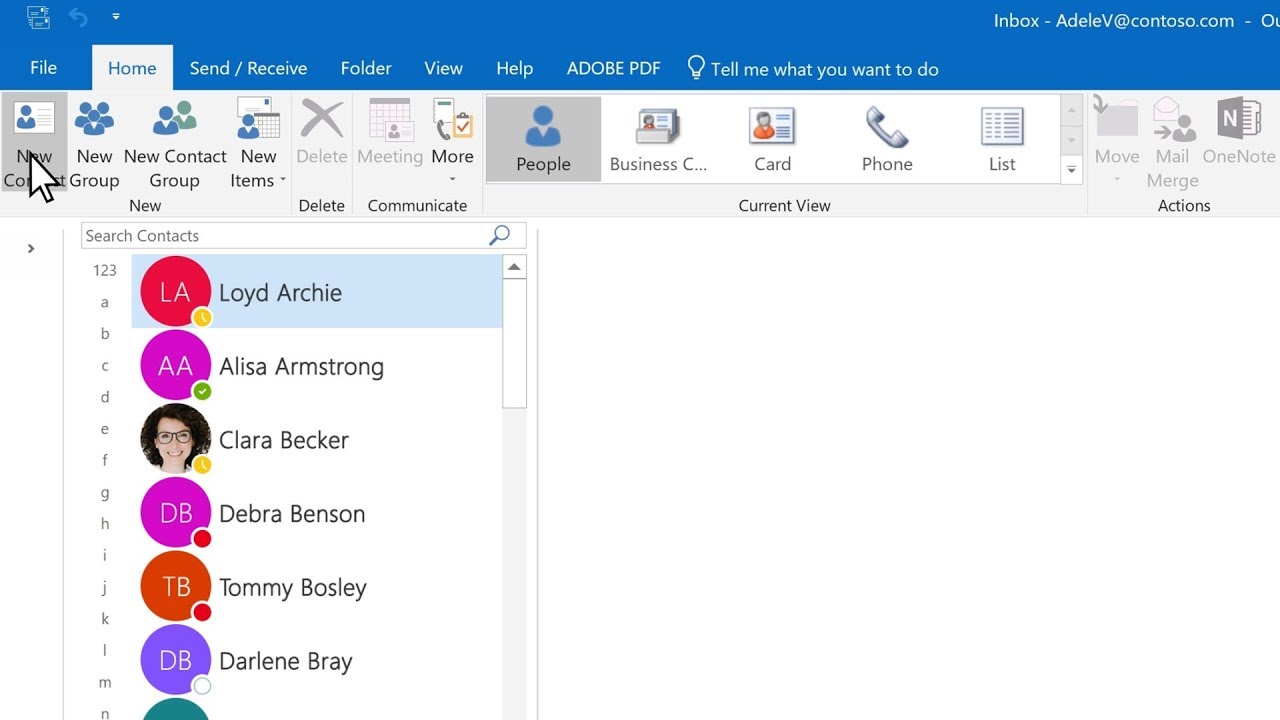
Whether you hit delete by mistake or your contacts are missing in Outlook after an update, help is here. You can retrieve contacts in Outlook with the right steps. Let's fix this problem together right now.
Try Recoverit to Recover Contacts from Outlook
Security Verified. Over 7,302,189 people have downloaded it.
In this article
Part 1: Why Do Contacts Get Deleted From Outlook?
Before we jump into recovery, let's see why contacts go missing from Outlook. Understanding the cause helps find the fix:
- Human error - We all accidentally delete suggested contacts in Outlook while cleaning up
- Sync failures between your phone, tablet, and computer
- Outlook updates that change how contacts are stored
- Sudden computer shutdowns that corrupt contact files
- Virus or malware that targets your Outlook data
- Account settings that change without warning
- Moving contacts between accounts gone wrong
- Full storage that prevents Outlook from saving properly
Part 2: Can I Easily Retrieve Contacts in Outlook?
Yes! You can retrieve contacts in Outlook in most cases. The key fact: Outlook doesn't erase data right away.
When you lose contacts in Outlook, they first move to the Deleted Items folder. Even after emptying this folder, a hidden Recoverable Items area keeps them for up to 30 days. This safety net helps you recover contacts in Outlook even after they seem gone forever.
Time matters here. The sooner you try to recover deleted contacts from Outlook, the better your chances. Don't create new contact cards for the same people right away. This could make recovery harder or create duplicates later. Try these recovery methods first, then add new contacts only if needed.
Part 3: How to Recover Deleted Contacts From Outlook
Let's explore four proven ways to recover contacts in Outlook. We'll start with the easiest methods and move to more advanced options.
Method 1: Use the Recoverit Tool
Recoverit stands out as a powerful solution to recover deleted contacts from Outlook. This recovery tool digs deeper than Outlook's built-in recovery options. It works with all modern Outlook versions, including 2016, 2019, and Microsoft 365.
The main strength of Recoverit is its deep scanning technology. It can find contact files that Outlook itself might miss. The tool searches through your entire system to locate fragments of contact data that can be rebuilt.
Recoverit offers several key features that make it effective for recovering deleted contacts in Outlook:
- Comprehensive Data Recovery: Supports recovery from over 500 data loss scenarios, including accidental deletion, system crashes, and formatting errors.
- Wide File Format Support: Can recover more than 1000 file formats without compromising quality.
- High Success Rate: Ensures efficient recovery with minimal data loss.
- Ease of Use: Provides a user-friendly interface for quick and hassle-free recovery.
These features make Recoverit a reliable tool for retrieving lost Outlook contacts.
Follow these simple steps to retrieve deleted contacts in Outlook:
- Install the Recoverit program and launch it from your desktop. Click the "Start" button. Let the program search your system.

- Once scanning finishes, preview the found contacts to confirm they're what you need. Select all contacts you want to recover and click the "Recover" button.

- Save the recovered contacts to a secure location, then open Outlook to import them into your address book.

Video Tutorial: How to Recover Outlook Emails?
This method works best when other recovery options fail. The deep scan takes time but delivers results even in tough cases.
Method 2: Check the Deleted Items Folder
The simplest way to retrieve deleted contacts in Outlook is to check your Deleted Items folder. This method works if you deleted contacts recently.
When contacts go missing, they typically end up in this folder, acting as Outlook's version of a trash can. They remain here until you manually clear the folder or automatic cleanup takes place.
Follow these steps to check Deleted Items and restore your contacts:
- Open Outlook on your computer. Find and click on the "Deleted Items" folder. . Look through this folder for your missing contacts.
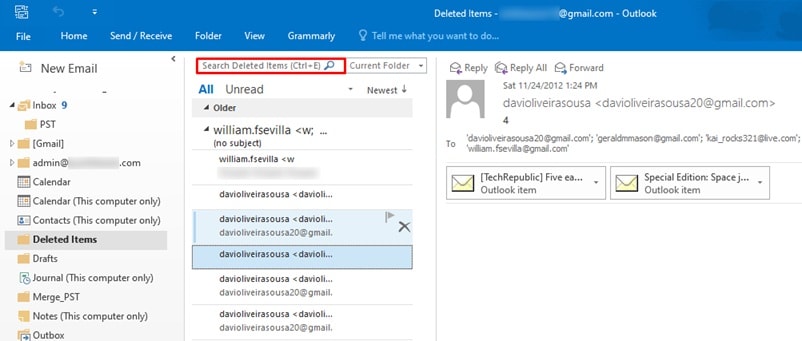
- When you find a contact, right-click on it. Select "Move" from the menu that appears. Choose "Contacts" as the destination folder. Click "OK" to move the contact back to your address book.
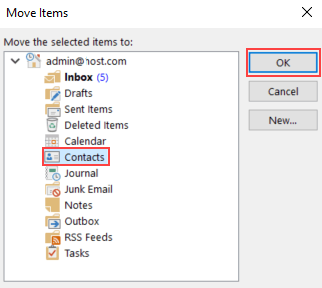
Repeat for all contacts you need to recover. Verify the contacts appear in your Contacts folder
If your contacts are missing in Outlook but you don't see them in Deleted Items, don't worry. They might be in the Recoverable Items folder, which we'll cover in the next section.
If the contact you are trying to recover is not present in the Deleted Items folder, then you can look for it in the folder marked Recoverable Items. To do that, follow the steps ahead:
Step 1 Go to the folder named "Deleted Items", and ensure that the "Home" tab is selected at the top. From this, select the option that says "Recover Deleted Items from Server".
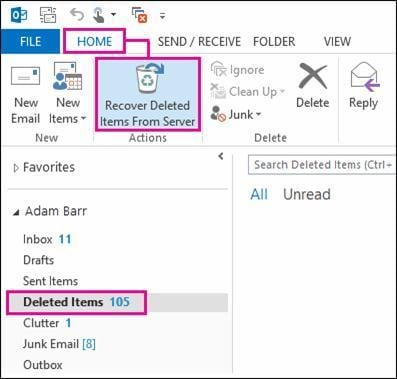
Step 2 For finding a contact in the window that appears, click on the Subject header and all items in the column will be sorted by Subject. Similarly, you can click on the "From" column to sort by the sender names. From here, search for the contacts that you are looking for.
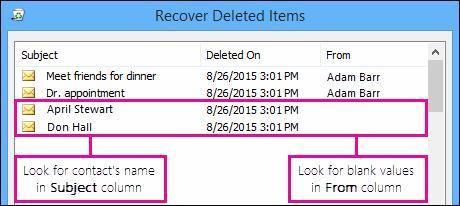
Step 3 From the contacts, select the ones that you are looking to recover, choose "Restore Selected Items" and then click on Ok. All the contacts that are recovered from here will then go to the Deleted Items Folder. From here on, you can follow the steps in the previous method to recover them.
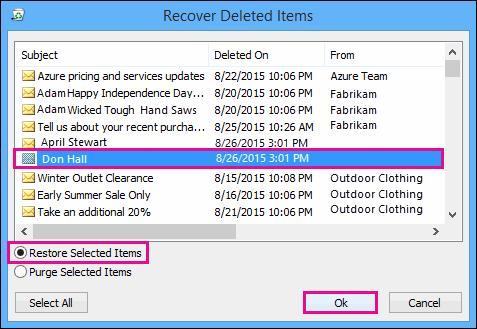
Method 3: Use Content Search (For Admins)
For business environments with Microsoft 365, admins have a powerful tool to recover contacts in Outlook - Content Search. This enterprise-level feature searches across mailboxes and recovers deleted items even after regular recovery periods end.
Content Search helps when standard methods fail. It's especially valuable for company-wide contact recovery or when helping employees who accidentally deleted suggested contacts in Outlook.
Follow these steps:
- Log in to the Microsoft 365 admin center. Enter your admin credentials. Navigate to the Security & Compliance center. Select "Search & investigation". Click on "Content search" in the submenu.
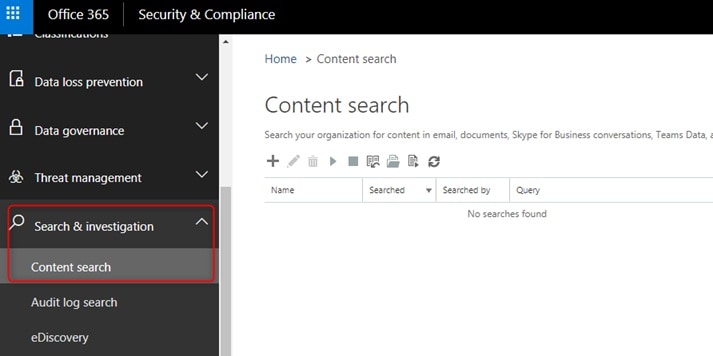
- Click the "New search" button and give your search a descriptive name. Set search parameters to look specifically for contact files (.vcf, .contact, etc.). Select the specific mailboxes you want to search, or search all mailboxes. Use keywords like the contact's name or email if you know them.
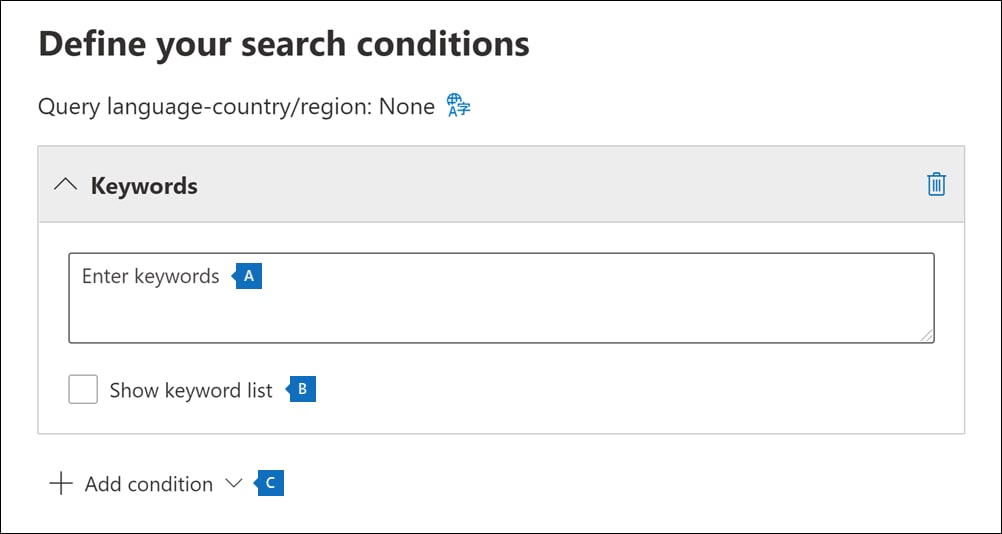
- Run the search and wait for results to appear. Review the found items and select contacts for recovery. Click "Export" to save the contacts. Download the results when processing completes. Import the contacts back into the user's Outlook
This method requires admin rights, so regular users should contact their IT department for help. The big advantage: it can find contacts deleted months ago if retention policies allow.
Method 4: Search for Archived Contacts
Sometimes contacts aren't deleted but archived. If you lose contacts in Outlook, checking archive folders might solve the mystery.
Outlook often moves older items to archive files automatically. Your contacts might still exist there. Archive files have a .pst extension and usually store in a separate location.
Follow these steps to check archives for missing contacts from Outlook:
- Open Outlook and click on the "File" tab in the top left corner. Select "Open & Export" from the menu that appears. Click "Open Outlook Data File" to browse your computer.
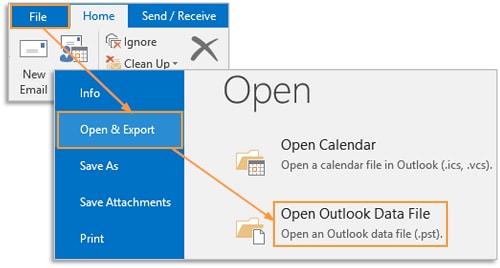
- Look for .pst files - common locations include: • Documents\Outlook Files
• C:\Users[username]\AppData\Local\Microsoft\Outlook\. Select the archive file and click "Open"
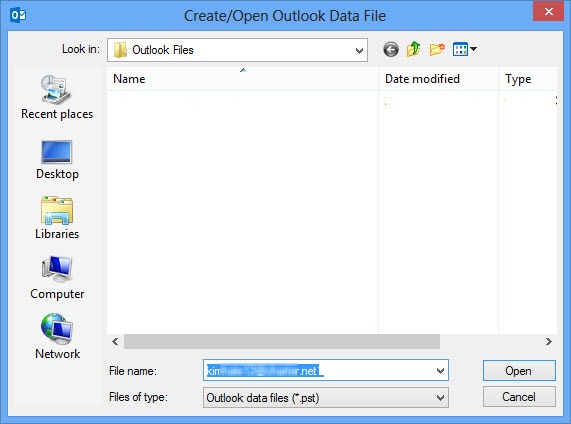
- The archive appears in your folder list as "Outlook Data File". Expand this folder and look for a Contacts or People subfolder. Browse through these folders for your missing contacts. Right-click on any found contacts and select "Move". Choose your main Contacts folder as the destination. Click "OK" to restore the contacts to your active address book
Verify the contacts appear in your main Contacts list
This method helps when contacts weren't actually deleted but moved to storage. Many users forget about automatic archiving and think they lose contacts in Outlook when they're just filed away.
Part 4: Pro Quick Tips to Recover Contacts in Outlook
Take your Outlook contacts recovery skills to the next level with these expert tips:
- Export your contacts regularly as a CSV or PST file - this creates backups you can restore later
- Check all email accounts connected to your Outlook - contacts might be under a different account
- Try Outlook on the web (outlook.com) - sometimes contacts show there even when missing in the desktop app
- Use the Search box at the top of Outlook with the person's name, company, or email address
- Restart both Outlook and your computer before trying recovery methods - this clears memory issues
- Look through all your folders manually - contacts sometimes move to odd folders by accident
- Check the "Suggested Contacts" folder - Outlook creates this automatically from your email history
- For work accounts, contact IT immediately - they might have server backups of your missing contacts from Outlook
- Use the "Import/Export" wizard to restore from any backup files you created earlier
- Try a system restore to an earlier date when you still had your contacts (last resort option)
Conclusion
When you lose contacts in Outlook, don't panic. As we've seen, multiple paths exist to recover deleted contacts from Outlook. From checking the Deleted Items folder to using specialized recovery tools, your contacts often can return.
The most important lesson: act quickly when you notice contacts missing in Outlook. Recovery chances drop as time passes. Create a habit of backing up contacts weekly to avoid future stress. A simple export takes minutes but saves hours of recovery work.
Remember these methods for when you need to retrieve contacts in Outlook. Save this guide for reference. Share it with coworkers who might face the same problem. With these steps and a bit of patience, your address book can be complete again.
Try Recoverit to Recover Contacts in Outlook
Security Verified. Over 7,302,189 people have downloaded it.
FAQ
-
How long can I recover deleted contacts in Outlook?
You can typically recover deleted contacts from Outlook within 30 days of deletion. Outlook's Recoverable Items folder keeps deleted content for this period by default. Company policies might extend or shorten this time. After this window closes, try specialized recovery tools like Recoverit or contact your IT department. They might have backups with your missing contacts from Outlook. -
Why are my contacts missing in Outlook after an update?
Contacts missing in Outlook after updates usually stem from view settings changes or profile issues. First, check your view configuration by clicking "View" in the ribbon and selecting "Reset View." Next, verify you're looking at the correct contacts folder - Outlook might have switched your default. If these don't work, try repairing your Outlook data file: go to Control Panel > Programs > Microsoft Office > Office Tools > Office Account > Office Updates. Sometimes a repair operation brings back contacts lost during updates. -
Can I retrieve contacts from a crashed Outlook file?
Yes, you can often retrieve contacts in Outlook from crashed files using the Scanpst.exe tool (Inbox Repair Tool). Find this program in your Microsoft Office installation folder and run it on your Outlook data file. For severe corruption, try the Recoverit tool mentioned earlier. In worst-case scenarios, professional data recovery services can help, though they cost more. Always create regular backups to protect against future crashes. Cloud-synced contacts (like Microsoft 365) recover more easily than local-only contacts.


 ChatGPT
ChatGPT
 Perplexity
Perplexity
 Google AI Mode
Google AI Mode
 Grok
Grok






















